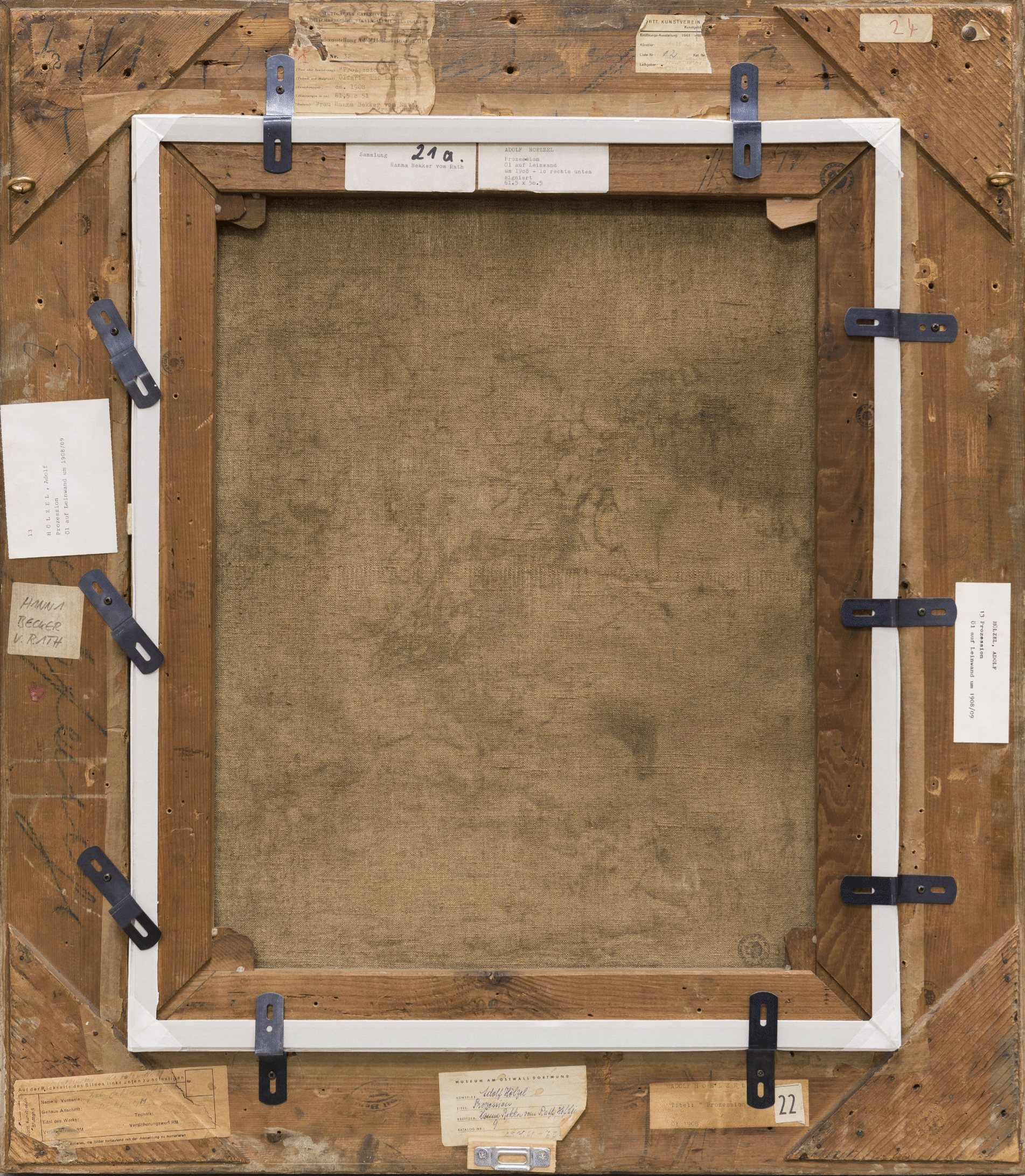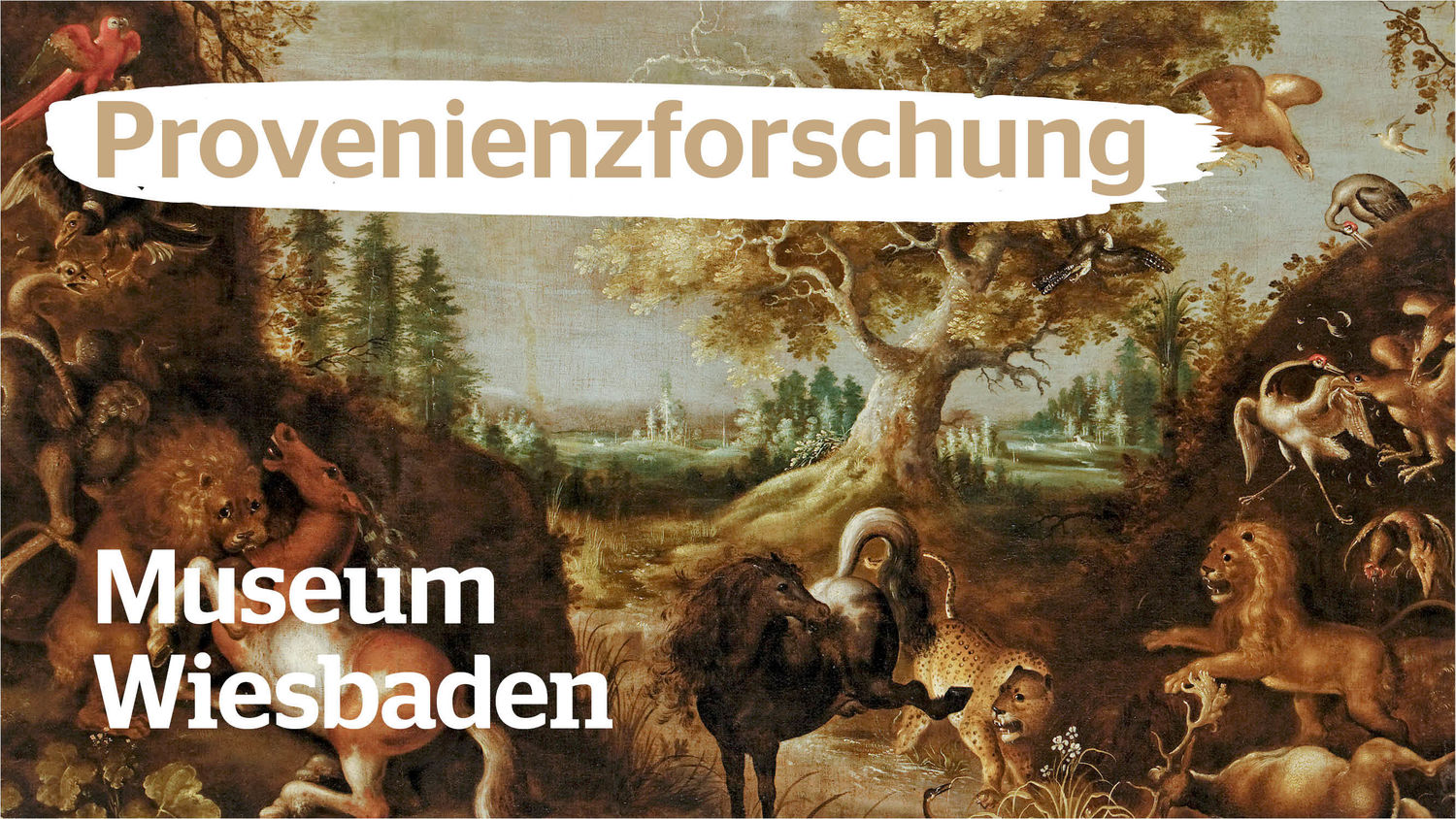
At the Washington Conference on Holocaust-Era Assets in 1998, the 44 participating governments, including the Federal Republic of Germany, under mutual recognition of their respective legal systems, agreed to uphold 11 principles regarding works of art expropriated by the Nazis. The goal of the Washington Conference was to find a “fair and equitable solution” for all parties. The German federal and state governments and central cultural associations reconfirmed their commitment to these principles in 1999 with the “Common Declaration, ” calling for German museums and institutions to examine their collections for Nazi-confiscated cultural goods, in particular, those originating from Jewish estates.
Honoring this commitment, Museum Wiesbaden, in the period between July 2009 and December 2014, conducted systematic research on the provenance of 140 paintings in its collection acquired in the years between 1935 and 1945. As a result, the provenance of over half of the paintings acquired under director Hermann Voss for the Wiesbaden collections were examined.
Dr. Peter Forster
Custos collections 12th to 19th century
Art Nouveau Donation F. W. Neess
Provenance Officer
Fon 0611 ⁄ 335 2282
Fax 0611 ⁄ 335 2192
peter.forster@museum-wiesbaden.de

You can also visit our blog to learn more about the museum’s work in provenance research, in general, as well as follow our progress on current cases, such as, a drawing by Max Liebermann, or the cases of Roelant Savery and the Flersheim familyThe Central Office for Provenance Research Hesse
The Central Office for Provenance Research Hesse was established in 2015 on the initiative of the Hessian state government in order to consolidate efforts in the search for cultural assets in Hesse that were expropriated as a result of Nazi persecution.
For further information, visit the website of the Central Office for Provenance Research Hesse.
The art collections of Museum Wiesbaden have been shaped by a sustained interest in spirited critical engagement with currents of Classical Modernism, Modern and Contemporary art. Archival research, documentation and estate management must be more than self-referential reappraisal.
Museum Wiesbaden offers a variety of programs for all ages, from guided tours to workshops for preschools and schools, to teacher training and programs for students, private groups, or families with children.